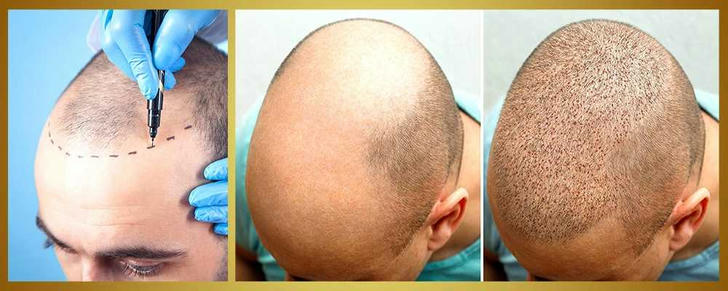Hair Transplants in the UK: A Complete Guide for Informed Choices
Considering hair transplants? This article explores hair transplants for seniors, how to make the right decision, how to find the most cost-effective options, and what financial assistance is available.

How to Correctly Choose a Hair Transplant
Choosing the right hair transplant requires careful consideration of medical, aesthetic, and practical factors:
Type of Procedure: The two most common methods are FUT (Follicular Unit Transplantation), where a strip of scalp is removed and transplanted, and FUE (Follicular Unit Extraction), where individual follicles are harvested and implanted. FUE tends to be less invasive with shorter recovery times, though often more expensive.
Extent of Hair Loss: Early or moderate hair loss may only require minor grafts, while advanced baldness may need several sessions. A consultation with a specialist is vital for assessing your stage of hair loss.
Surgeon Expertise: Selecting a clinic with experienced surgeons registered with the General Medical Council (GMC) or members of the British Association of Hair Restoration Surgery (BAHRS) ensures higher safety and credibility.
Health Considerations: Conditions such as diabetes, autoimmune disorders, or scalp diseases can affect success rates. A full health assessment is recommended before treatment.
How to Find the Most Affordable Hair Transplants?
Hair transplants in the UK can cost between £1,000 and £5,000, depending on the number of grafts, clinic reputation, and chosen method. For those seeking more affordable solutions, here are practical strategies:
Package Deals: Some clinics offer discounts for multiple procedures, hairline restoration combined with PRP therapy, or referrals of other patients.
University and Training Clinics: Certain medical schools and training centers may offer lower-cost procedures performed under expert supervision.
Medical Tourism: Some UK residents opt for treatment abroad in countries such as Turkey, Hungary, or Poland, where procedures may cost 50–70% less. However, follow-up care should be considered, as returning for adjustments may add extra expense.
Financial Assistance for Hair Transplants in the UK
Hair transplants are usually considered cosmetic procedures, meaning they are not covered by the NHS. However, there are still options for financial assistance and flexible payment:
NHS Coverage (Rare Cases): In exceptional cases where hair loss is due to burns, trauma, or reconstructive needs, the NHS may partially fund treatment.
Private Medical Loans: Many patients finance their procedures through personal medical loans, with repayment periods ranging from 12 to 60 months.
Charities and Support Programs: Organisations supporting burn victims or individuals with alopecia areata occasionally provide grants or funding support.
Conclusion
Hair transplants in the UK offer a life-changing opportunity for individuals struggling with hair loss, restoring confidence and improving self-image. By carefully considering the right procedure, comparing costs across clinics, and exploring available financial assistance, patients can make a well-informed decision that suits both their needs and budget. While the treatment requires significant investment, the long-term benefits in appearance and quality of life can be invaluable.
